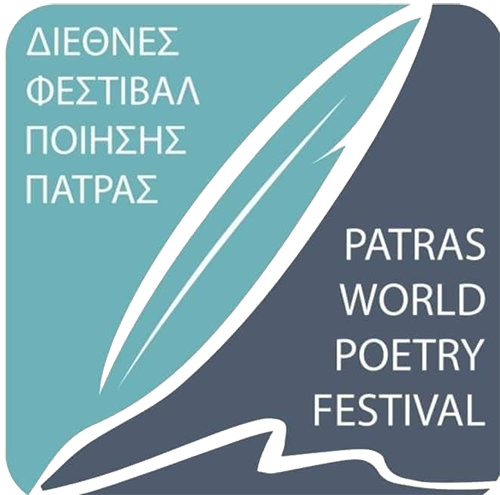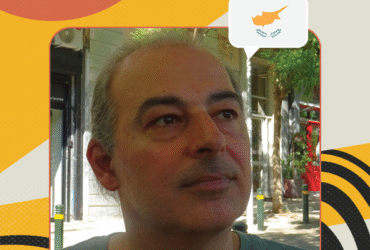I Demand to Linger in Every Gesture
blissful slowness in both legs
if I have all the sun on my nape
and touching is a nutritious
and exact way of feeling in the blood
the stealthy journey of happiness
I demand to waste every minute
slowly moving my two feet
if the sun comes to burn me down in the afternoons
and the time for rushing is secondary,
if a moment comes within its eternity,
its condition undefeated and perennial.
I demand the impossible permanence
of an arm over the summer air,
the turn of a hand that wanders off
from the body and resists falling
until it roundly negates certain norms
and laws legislated during winter,
as that which mandates fallen bodies
on the floor, in the age of death.
I demand the most beautiful occurrence
of being right at the edge of the afternoon
in this permanence, in the stillness
of light that the body, translucent,
and so far away from its ruin, severs.
I demand this shoreless minute
Despite all that I know, I demand it.
(from Carnality of Cold, 2000)
(translator Francisco Larios)
la lentitud feliz en las dos piernas
si tengo todo el sol sobre la nuca
y el tacto es una forma nutritiva
y exacta de sentir sobre la sangre
el viaje subterráneo de la dicha.
en mover lentamente los dos pies
si el sol viene a incendiarme por las tardes
y el tiempo de la prisa es secundario,
si un momento viene en su eternidad,
su condición perenne y sin derrota.
de un brazo sobre el aire del verano,
el giro de una mano que se aparta
del cuerpo y se mantiene sin caer
hasta negar rotunda algunas normas
y leyes legisladas en invierno
como la de los cuerpos abatidos
contra el suelo, en el tiempo de la muerte.
de estar al borde mismo de la tarde
en esta permanencia, en la fijeza
de la luz recortada contra el cuerpo
translúcido y tan lejos de su ruina.
A sabiendas de todo lo reclamo.
Απαιτώ να βραδυπορώ σε κάθε κίνηση,
η ευτυχισμένη βραδύτητα στις δύο κνήμες
αν έχω όλο τον ήλιο στον αυχένα μου
κι η αφή είναι μια θρεπτική κι ακριβής
μορφή για να αισθανθώ μέσα στο αίμα
το υπόγειο ταξίδι της ευτυχίας.
Απαιτώ να σπαταλάω κάθε λεπτό
σηκώνοντας αργά τα δύο πόδια
αν ο ήλιος έρχεται να μου βάλει φωτιά τα
απογεύματα
κι ο βιαστικός χρόνος είναι δευτερεύων,
αν μια στιγμή έρχεται μες την αιωνιότητά της,
την αειθαλή κι αήττητη κατάστασή της.
Απαιτώ την ακατόρθωτη παραμονή
ενός μπράτσου μες το καλοκαιρινό αεράκι,
τη συστροφή ενός χεριού που χωρίζεται
απ’ το σώμα και στέκεται δίχως να πέσει
ώσπου να αρνηθεί ρητά κάποιους κανόνες
και νόμους θεσμοθετημένους τον χειμώνα
όπως εκείνον για τα κουρασμένα κορμιά
πάνω στο χώμα, τον καιρό του θανάτου.
Απαιτώ τη θεσπέσια ευκαιρία
να στέκομαι στο ίδιο το χείλος του απογεύματος
σε αυτή τη μονιμότητα, τη σταθερότητα
του ψαλιδισμένου φωτός πάνω στο διάφανο
και τόσο μακρινό απ’ τη συντριβή του σώμα.
Απαιτώ αυτή τη χωρίς όχθες στιγμή.
Με πλήρη επίγνωση το απαιτώ.
December, 1997.
The Insolent Gaze
The insolent gaze
is a sharp form like a nail into the earth,
it contains a horrible portion of itself
and it hardly imagines
the depauperizing humiliation of being
as if not being,
of the body that shrivels
and shrinks in its novice knot
becoming ash, turning invisible
matter degraded by hate,
the straw that softly catches fire.
The insolent gaze
accompanies the insolent hand, the leg,
to clench the body in the claw of fear
because she is so alone, and already beaten.
Wounded from grief and scourged
by the firebrand of fright borne by one who is her angel
of evil or of wrath.
The insolent violence
makes the body’s borders tremble
and in their slow combustion, like a holm oak,
the ink from her veins writes this calvary
when the temple of the flesh was profaned
and scrawl fills the air, graffiti
with the voice begrimed and filthy from that scream
that chars the lips, the vocal cords
“because I didn’t know how to talk
because I couldn’t read
because I was a burden
because I wasn’t worth a cent.”
Oh paper body for the bonfire.
(from The Angel of Wrath, 1999)
(translator Francisco Larios)
fuego un 17 de diciembre de 1997
La mirada insolente
es una forma aguda como un clavo en la tierra,
contiene una porción horrible de sí misma
y apenas imagina
la depauperada humillación de estar
como si no,
del cuerpo que se arruga
y se encoge en su nudo primerizo
volviéndose ceniza, haciéndose invisible
materia degradada por el odio,
la paja que se prende con blandura.
La mirada insolente
acompaña a la mano, a la pierna insolentes
para apresar el cuerpo con el garfio del miedo
porque ella está tan sola y ya vencida,
herida de la queja y azotada
con el tizón de espanto que lleva el que es su ángel
del mal o de la ira.
La violencia insolente
hace temblar los márgenes del cuerpo
y en su lenta combustión como de encina
la tinta de las venas escribe ese calvario
cuando era profanado el templo de la carne
y en el aire se anotan garabatos, grafitis
con la voz enfangada y sucia de ese grito
que calcina los labios, las cuerdas de la boca,
“porque yo no sabía hablar
porque yo era analfabeta
porque yo era un bulto
porque yo no valía un duro”.
Oh cuerpo de papel para la hoguera.
(de El ángel de la ira, 1999)
της στις 17 Δεκεμβρίου 1997
είναι μια αιχμηρή μορφή σαν το καρφί στο χώμα,
περιέχει μια απαίσια δόση του εαυτού του
και μετά βίας φαντάζεται
την εξαθλιωμένη ταπείνωση του να είναι
σαν να μην υπάρχει,
του σώματος που ζαρώνει
και κουλουριάζεται σε εμβρυακή στάση
μετατρέπεται σε στάχτη, γίνεται αόρατο
ύλη εξευτελισμένη από το μίσος,
το άχυρο που γλυκά αρπάζει φωτιά.
Το θρασύ βλέμμα
συνοδεύει θρασύ χέρι και πόδι
για να δέσει το σώμα με τον γάντζο του φόβου
γιατί αυτή είναι τόσο μόνη και πλέον ηττημένη,
λαβωμένη από το παράπονο και χαρακωμένη από
τον πυρσό του τρόμου που φέρει αυτός που είναι
ο άγγελός της
του κακού ή της οργής.
Η θρασεία βία
κάνει να ριγούν τα όρια του κορμιού
και στην αργή ανάφλεξή της σαν βελανιδιά
το μελάνι των φλεβών γράφει αυτό το μαρτύριο,
όταν βεβηλωνόταν ο ναός της σάρκας
και στον αέρα σχηματίζονται μουντζούρες,
γκράφιτι
με τη λασπωμένη και βρόμικη φωνή αυτής της
κραυγής
που απανθρακώνει τα χείλη, τις φωνητικές χορδές
«γιατί δεν ήξερα να μιλώ
γιατί ήμουν αναλφάβητη
γιατί ήμουν ένα βάρος
γιατί δεν άξιζα τίποτα»
Ω, χάρτινο σώμα για την πυρά.





